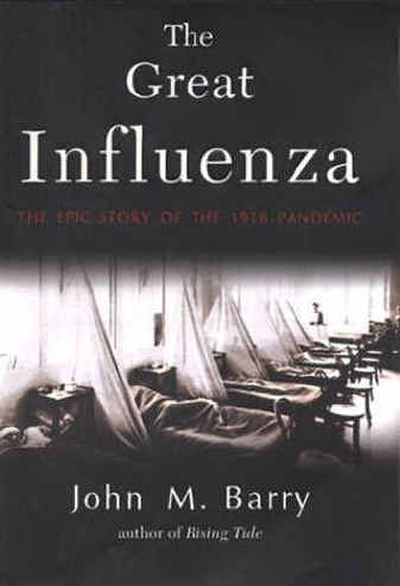A riveting read, even if you’re no egghead

What it is: “The Great Influenza: The Epic Story of the Deadliest Plague in History” is author John M. Barry’s riveting account of a shockingly violent flu outbreak that swept the world in 1918.
What it’s all about: Barry has meticulously and coherently detailed the circumstances of 1918’s worldwide epidemic, including the state of medical science at the time, the influence of still-raging World War I, the government and military figures who turned a blind eye to the outbreak and the scientists who rose to new heights of achievement trying to stop it.
Why we like it: It might not sound like the most fun read for summertime. After all, the true story of a modern-day plague that killed “more people in a year than the Black Death of the Middle Ages killed in a century” is bound to be something of a downer. Added to that, the book is 465 pages, not counting the bibliography and index – in hardback, it’s a weighty, intimidating tome. Nevertheless, pick it up and start reading, and I defy you to put it down.
Barry’s style is so clear and engaging that even science-phobes like me can comprehend the (certainly dumbed-down) details of how antigens and RNA viruses and antibodies work, and he has the rare skill of explaining complicated things simply while still making the reader feel smart for grasping it all. He also offers insightful and illuminating portraits of the people – scientists, doctors, administrators, even President Woodrow Wilson – involved in the pandemic, bringing the past to vivid life. The result is a story so gripping, so enlightening, so affecting that it’s a must-read for fans of history.
It’s also an eye-opening look at a disease that we typically treat casually, given that most of us have had – and survived – the flu at one time or another. “The Great Influenza” makes it clear that the right combination of virus antigens and circumstances could lead to another devastating outbreak, which makes it not only a book you won’t be able to put down, but also a book you shouldn’t fail to pick up.